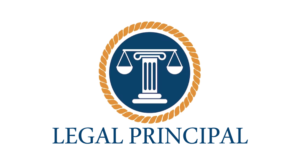Divorce proceedings can be emotionally draining, but they can also expose your private life to public scrutiny. From financial disclosures to personal communications, sensitive information often becomes part of the legal process. To safeguard your privacy and maintain control over your personal data, follow these essential tips from your divorce attorney.
Divorce can feel overwhelming, and you may worry about confidential details falling into the wrong hands. Below is a featured image that captures the emotional weight of a divorce consultation, highlighting why privacy matters.
Understanding the Importance of Privacy
When working with a trusted divorce attorney in Chicago, it’s crucial to recognize how protecting your privacy impacts the outcome of your case. Confidentiality not only shields your personal life from public exposure but can also influence negotiations around child custody, spousal support, and asset division. Finding a skilled divorce attorney in chicago ensures you have a professional guiding you through every step, safeguarding your interests and personal information.
Tip 1: Choose the Right Communication Channels
Open, honest communication with your family law attorney is vital—just make sure it’s secure. Avoid discussing sensitive details via email or unsecured messaging apps. Instead, opt for encrypted platforms or communicate in person when possible. Many divorce law firms in Chicago offer client portals that allow you to share documents and messages safely, preserving the confidentiality of your legal strategy and personal data.
Tip 2: Limit Social Media Activity
In the era of digital footprints, every post, photo, or comment can be used against you. Even seemingly innocuous updates can reveal private details to opposing counsel or the court. Refrain from posting about your divorce, vacations, or spending time with friends. Update privacy settings on social media profiles or consider a temporary hiatus until your case is finalized. By controlling your online presence, you reduce the risk of exposing valuables such as your location or emotional state, which could affect custody decisions or settlement negotiations.
Tip 3: Secure Financial and Digital Records
Divorce cases often require detailed financial disclosures. To protect your assets and financial privacy, work closely with your divorce lawyer in Chicago to organize bank statements, tax returns, and investment accounts. Consider setting up separate accounts for legal fees to avoid mingling personal finances. Additionally, protect digital accounts (email, cloud storage, social media) with strong passwords and two-factor authentication. This prevents unauthorized access to personal files, photos, and messages that might be misinterpreted or misused during the divorce process.
Tip 4: Understand Court Filings and Public Records
Most documents filed in divorce court become part of the public record. This includes petitions, motions, and financial affidavits. Before any sensitive document is filed, consult your divorce attorney to redact private information where permitted. For example, Social Security numbers, account numbers, and specific addresses can sometimes be redacted to minimize exposure. Knowing how divorce proceedings work in Illinois courts helps you make informed decisions about what becomes public.
Tip 5: Work with Professionals Who Prioritize Confidentiality
From forensic accountants to child custody evaluators, multiple professionals may be involved in your divorce. Ensure each expert you consult adheres to strict confidentiality standards. A reputable divorce attorney will vet these experts and emphasize the importance of NDAs (non-disclosure agreements) when necessary. This layer of protection ensures that personal details, especially those concerning children or sensitive financial matters, remain private.
Tip 6: Be Mindful of In-Person Interactions
Even face-to-face meetings can compromise your privacy. Be cautious about discussing your case in public places like coffee shops or restaurants. Always verify the identity of anyone requesting information—whether it’s a court-appointed mediator or a private investigator. If you receive unsolicited inquiries, direct them to your legal counsel rather than providing details yourself. Controlling the setting and participants in in-person interactions helps you maintain a secure environment for sensitive conversations.
Tip 7: Know Your Rights Under Illinois Law
Illinois law grants certain privacy protections in divorce proceedings. For instance, you can request confidential communication channels for custody evaluations or financial disclosures. Discuss these options with your attorney, who can file appropriate motions on your behalf. Understanding the legal framework of divorce in Chicago empowers you to assert your rights and keep private matters confidential.
Throughout the divorce process, the guidance of a divorce attorney in Chicago is invaluable. By choosing a seasoned professional, you gain a partner who understands both the legal complexities and the human impact of divorce. With their support, you can navigate negotiations, protect sensitive information, and work toward a resolution that safeguards your privacy.
Remember, every divorce is unique, and the strategies for protecting your privacy will vary based on individual circumstances. To learn more about how to safeguard your confidential information and ensure a fair outcome, reach out to an experienced family law attorney today.

